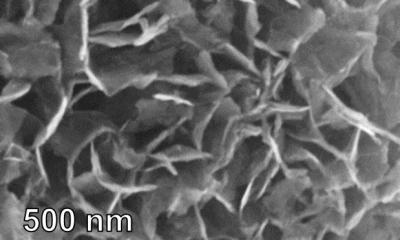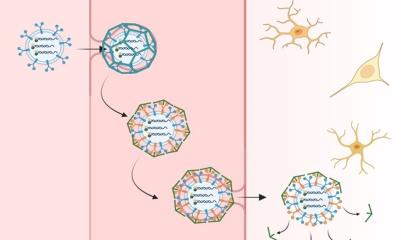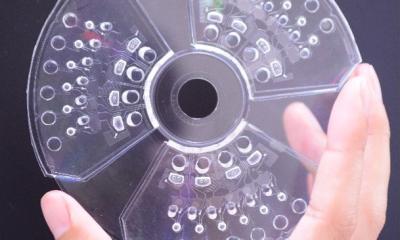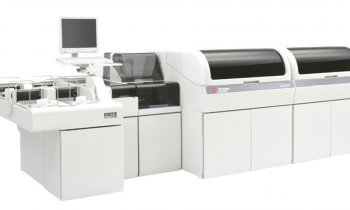News • Advanced chemistry
Enhancing sensors that could help cure Alzheimer's and Diabetes
Viscosity sensors are used by scientists fighting various diseases, such as Alzheimer's and Diabetes. Vilnius-based chemist Aurimas Vyšniauskas has enhanced their measuring capabilities. This breakthrough will equip researchers with additional tools to study living cells and how they change in a sick organism.
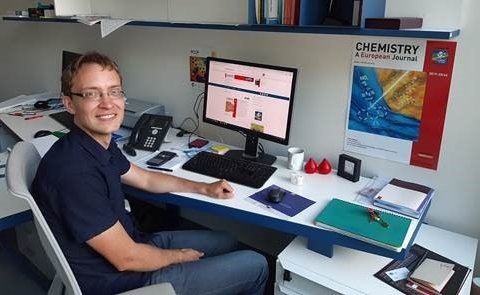
© Center for Physical Sciences and Technology
Recently, one of the leading international scientific journals on chemistry, Chemistry: A European Journal, featured an article by Vyšniauskas. The 31-year-old Oxford and Imperial College London graduate’s work on fluorescent viscosity sensors states that the scientist and his team have managed to change the structure of viscosity sensors and enhance the viscosity-sensitivity range of them by a very significant margin.
Personally, I will not cure Alzheimer’s, nor diabetes. But if I am successful, I will finally manage to create a tool that would help other scientists treat these and other incurable diseases
Aurimas Vyšniauskas
Put simply, viscosity sensors are small molecules used to measure viscosity around them, and they are used as tools to study what is happening inside a living cell. Various diseases, Alzheimer’s and diabetes being notable examples, cause viscosity changes in cells. With the sensors of improved sensitivity, it will be possible to determine better what adverse effects come with the change of viscosity in a cell. “I call myself a craftsman of tools – molecule-kind tools,” says Dr Vyšniauskas. “Personally, I will not cure Alzheimer’s, nor diabetes. But if I am successful, I will finally manage to create a tool that would help other scientists treat these and other incurable diseases that are popularly called civilizational epidemics.”
At the early stage of diabetes, the viscosity of the membrane of liver cells increases. The receptors of insulin in the membrane of these cells continually deliver signals and connect with one another, but the increase in viscosity leads to poor connections, the regular cell activity gets disrupted, and the cells are no longer able to recognise insulin. “Up until this point, the most popular viscosity sensor could measure cell viscosity from 5 to 1500 viscosity units of measurement, or cP,” added Vyšniauskas. “We managed to increase this range, and our method can measure viscosity in the range of 0.5 to 50000 cP. This is a big accomplishment. Imagine a thermometer that could only measure temperature from 10°C to 20°C. Metaphorically speaking, we have created a new thermometer with a measurement range from -10°C to 60°C.”
Recommended article
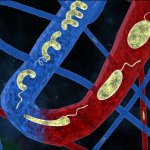
Video • Miniscule swimmers
Microrobots could re-shape drug delivery
Scientists have developed minute flexible robots that could help revolutionise drug delivery in the future. These ‘microrobots’ are so small that they could be ingested, or inserted into human veins to deliver drug therapies directly to diseased body areas.
Currently, viscosity sensors are only used by scientists who study them, but there is no doubt, according to Vyšniauskas, that once this method is developed to become a reliable tool, it will be used by both biochemists and cell biologists. The breakthrough in viscosity measurement was a fruit of collaboration between many scientists from the Center for Physical Sciences and Technology and Vilnius University. “Since physical chemistry is an interdisciplinary field, we needed knowledge from various scientific fields to make this achievement possible,” elaborated Dr Vyšniauskas. “As I am a chemist, I need to consult with theoretical physicists who are specialists in theoretical calculations, which are crucial for explaining how viscosity sensors work. I also cooperate with other chemists, particularly those who synthesize molecules. Biologists are also involved, as the implementation of our research would be in their field, biology. The collaborative process is fascinating.”
The young scientist now works at the Center for Physical Sciences and Technology in Vilnius, Lithuania. According to him, the decision to head home after receiving his doctoral degree in the UK was pretty straightforward. “A couple of reasons were at play when deciding where to continue with my career after the studies,” commented Dr Vyšniauskas. “For one, the Department of Molecular Compound Physics where I work employs several excellent scientists who produce international-level results. Being a young scientist, it is a privilege to work hand in hand with these experienced researchers. Also, it is a more stable environment for a scientist here than it is in the UK. Extremely high competition in the UK science community causes unnecessary stress, while here, I can focus on my research and feel valued. Finally, we have state-of-the-art facilities and favourable all-around conditions.”
Source: Go Vilnius
09.10.2019



